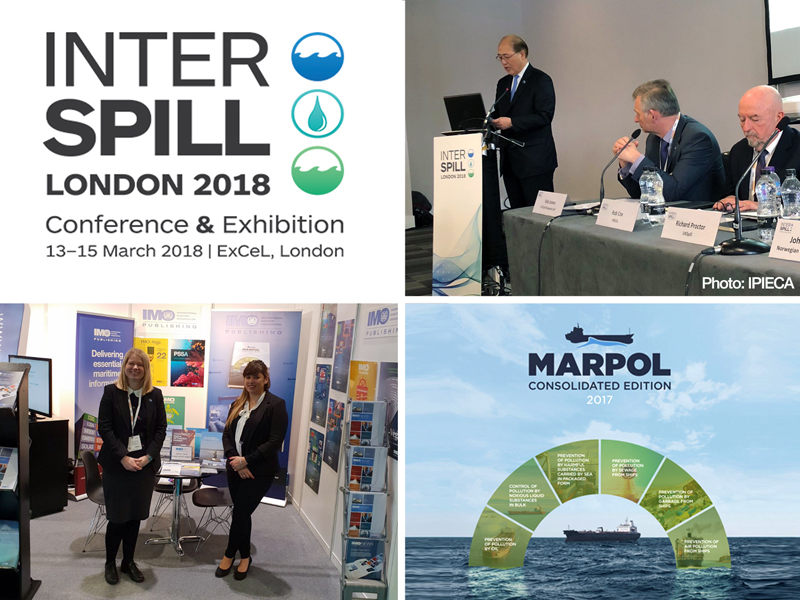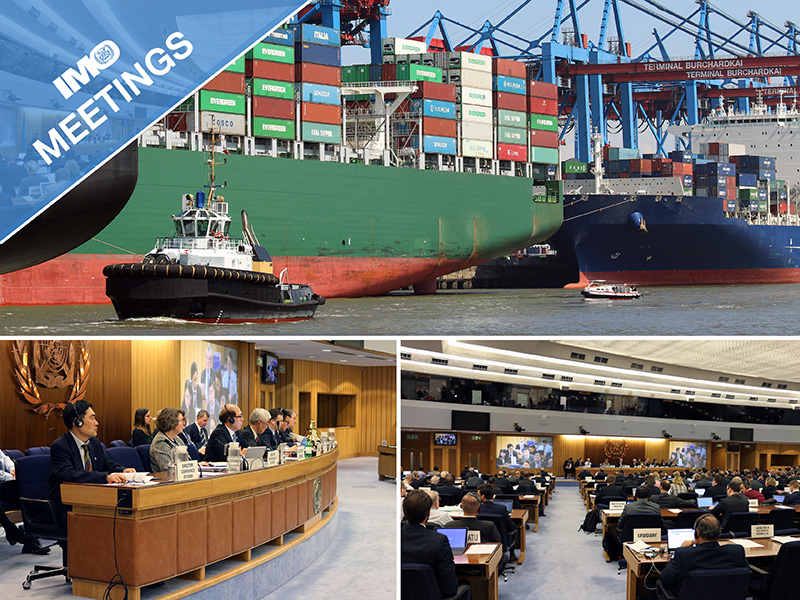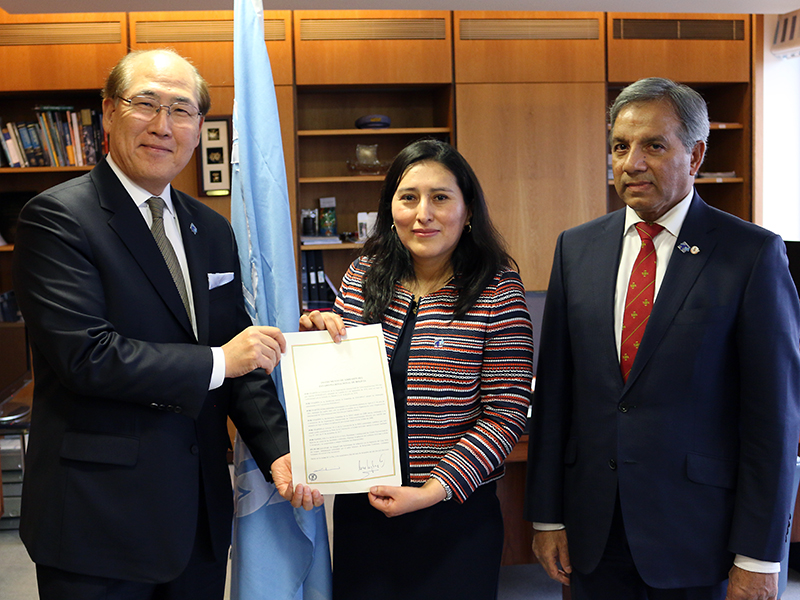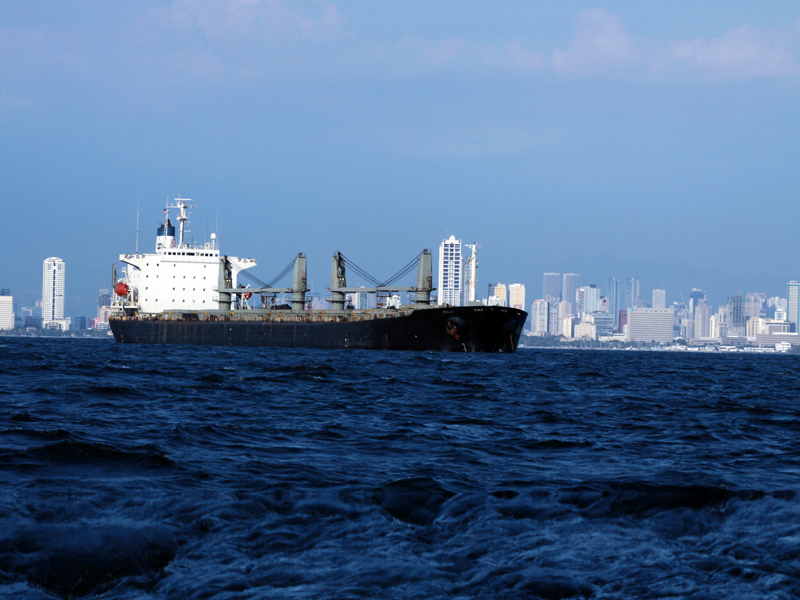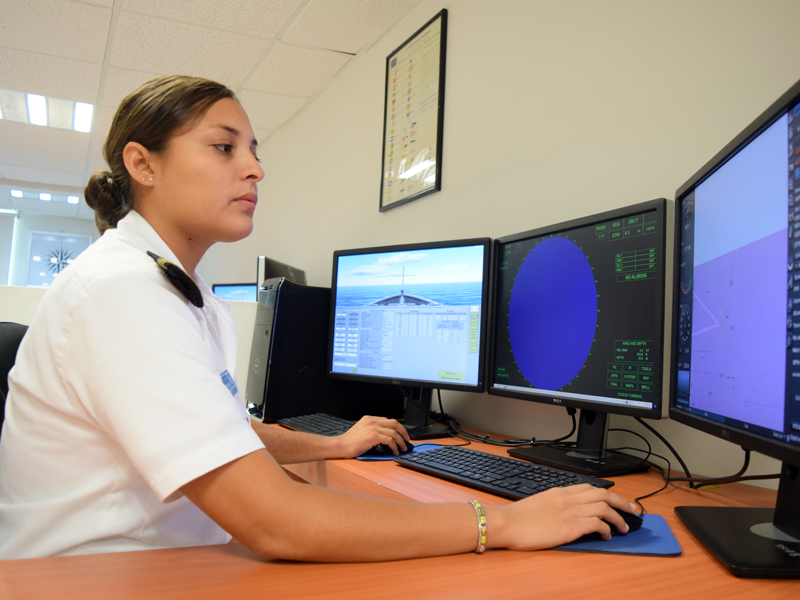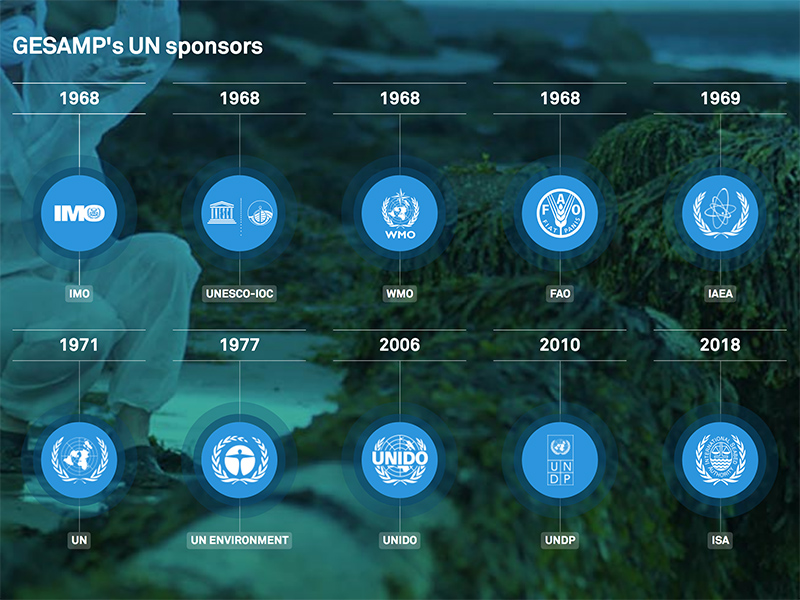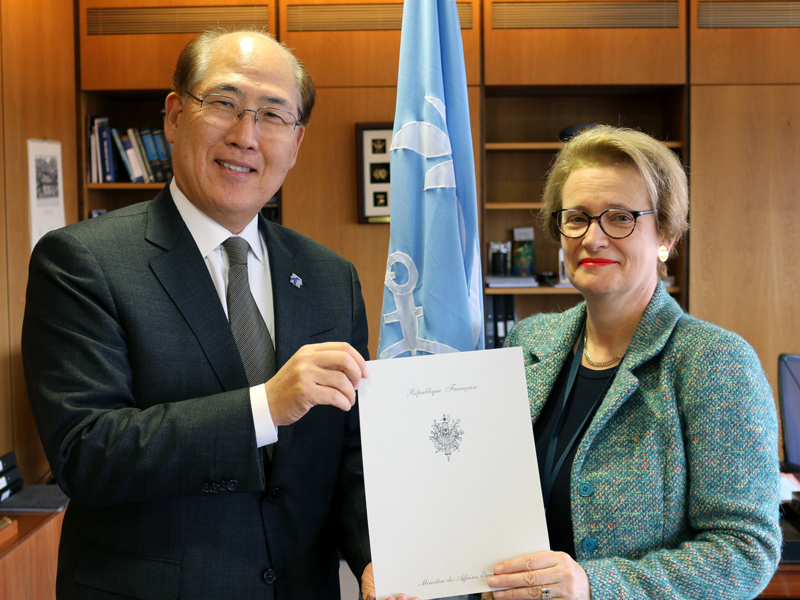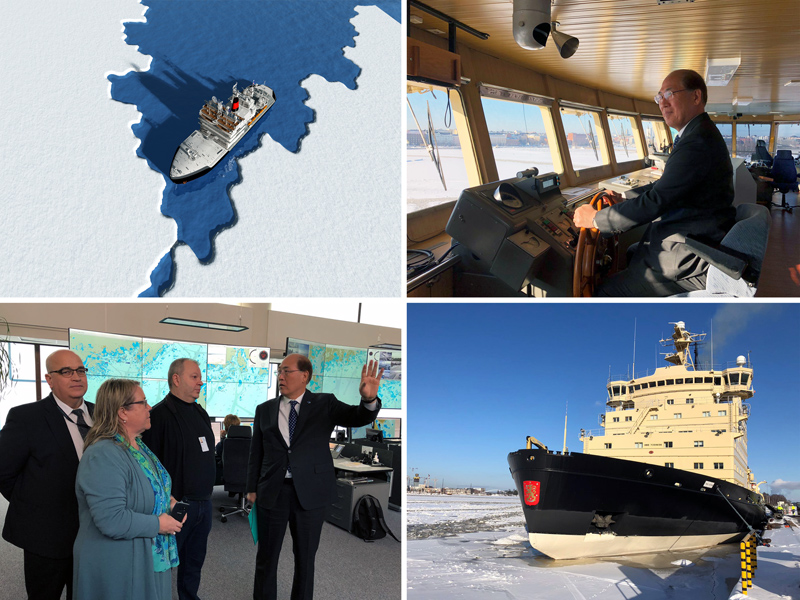Whats New 2018
Spill preparedness and response – a collaborative effort
IMO has joined leading oil spill experts and stakeholders to
discuss future issues concerning oil spill preparedness, response and
restoration – at the Interspill 2018
conference and exhibition in London (13-15 March). Speaking at the opening session, IMO Secretary-General Kitack Lim said that “many years of collaborative
work between governments and industry, at IMO, have helped reduce dramatically
the number of oil spills and the amount of oil spilt from ships”. Mr. Lim
outlined how individual incidents had been catalysts for significant
improvements, through IMO regulations, in areas such as ship design, operation,
disposal of engine room wastes, as well as the framework for compensating the
victims of pollution incidents. more...
Safety aspects of shore-side power
Plugging a ship into shore-side power - and turning off onboard generators - is one solution to reducing air pollution from ships, as well as limiting local noise. IMO is this week beginning to look at the safety aspects of on shore power supply to ships. The Sub-Committee on Ship Systems and Equipment (SSE) is meeting 12-16 March. more...
Plurinational State of Bolivia joins International Mobile Satellite Organization
The Plurinational State of Bolivia has become the 104th country to join the International Mobile Satellite Organization (IMSO), the inter-governmental body that oversees the provision of certain satellite-based maritime distress communication services. The IMSO Convention was adopted by IMO in 1976 to establish and oversee satellite communications for shipping. Ms. Giovanna Lenny Vidal, Chargée d'Affaires, met IMO Secretary-General Kitack Lim and IMSO Director General Capt. Moin Ahmed (pictured: right) to deposit the instrument of accession to the Convention.
Philippine officials trained in forming maritime transport policy
Officials from various government entities in
the Philippines have received training in how to develop a National Maritime
Transport Policy (NMPT). The concept is being promoted by IMO as a good governance
practice to guide planning, decision making and legislation in the maritime
sector, and as a key driver for a country's sustainable development. The event
took place in Manila, Philippines (6-8 March), organised by IMO together with
the Philippines Maritime Industry Authority (MARINA) and the World Maritime
University (WMU). more...
Stopping the spread of invasive species
Non-native species can be spread from ocean to ocean via ship. The joint International Council for the Exploration of the Sea (ICES), Intergovernmental Oceanographic Commission of UNESCO and IMO (ICES/IOC/IMO) Working Group on Ballast and Other Ship Vectors, discussed various topics related to the management of both ballast water and biofouling, which are the two vectors for ship-mediated introductions of invasive aquatic species, at its annual meeting, held in Madeira, Portugal (5-7 March). more...
Maritime women to benefit from new leadership course
Maritime subjects are set to feature on a new Leadership in the Public Sector course being developed by the training arm of the UN system – the United Nations Institute for Training and Research (UNITAR). This was decided at a UNITAR meeting at IMO Headquarters, London (28 February) where a task force, including IMO, was set up to develop the course. more...
New sponsor for marine science
IMO's marine science advisory group, GESAMP*, is welcoming a new sponsor. The International Seabed Authority (ISA), the agency responsible for regulating mining and related activities in the international seabed, beyond national jurisdiction, an area that includes most of the world's oceans, is becoming the tenth sponsoring organization of GESAMP. more...
France ratifies fishing vessel safety treaty
Efforts to increase global fishing vessel safety have received a boost with France becoming the ninth State to ratify IMO’s Cape Town Agreement. The treaty covers various important safety requirements including radiocommunications, life-saving appliances and arrangements, emergency procedures, musters and drills. more...
Putting the Polar Code into practice
IMO’s Polar Code, when properly applied, is a powerful tool for safeguarding the environment and protecting the lives of seafarers and passengers in the challenging polar regions. This was the message from IMO Secretary-General Kitack Lim to an international conference on implementing the Polar Code, in Helsinki, Finland (22 February). The Code entered into force in January 2017 and sets out mandatory standards covering the full range of design, construction, equipment, operational, training and environmental protection matters that apply to ships operating in the inhospitable waters surrounding the two poles. more...
